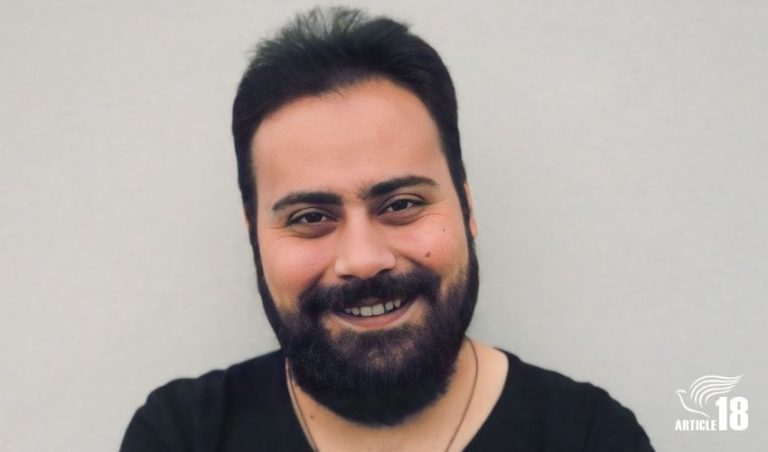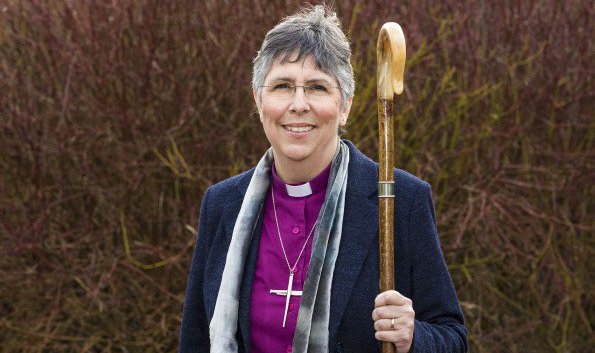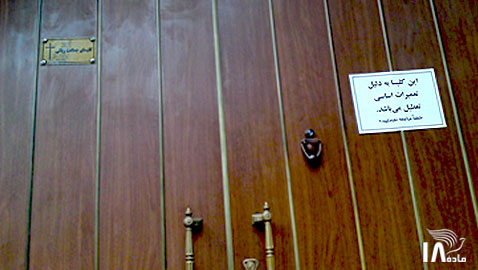
It’s 10 years since Nasrin was arrested, but it has taken nearly all that time for her to recover and reach the point where she now feels able even to forgive those who mistreated her.
Nasrin was one of six women converts to Christianity arrested in February 2013 and held for two weeks in a prison in the city of Isfahan, during which time they were held in torturous conditions, interrogated repeatedly, and threatened with rape and execution.
On Nasrin’s very first night in detention, she recalls how “a young interrogator came up to me, and came very close to me and flirtatiously whispered into my ear”.
“I felt very uncomfortable,” she explains. “His behaviour was disgusting to me, and I was very afraid that he would try to rape me.”
That same night, a different interrogator kicked Nasrin’s chair so hard that she “banged hard against the wall”.
“Then he kicked my hand and side again,” she says. “I was wearing a black coat, and his footprints were visible on my coat, and my hand was in great pain.”
When, after a week in the ward belonging to Iran’s Ministry of Intelligence the women were transferred to the women’s ward of the prison, Nasrin was forced to strip naked, despite protesting.
“It was a very painful moment,” she says, “because my period had started, and no matter how much I insisted that I wasn’t in the right condition and couldn’t completely remove my clothes, the female officer didn’t agree with me.”
The interrogators from the Ministry of Intelligence had even used the threat of being transferred to the women’s ward of the prison to try to get them to talk.
“They said: ‘You’re safe here,’” Nasrin recalls. “‘In the women’s ward, the prisoners won’t have mercy on you, and will harass and rape you!’”
Nasrin was finally released on bail after two weeks’ detention – one week with the Ministry of Intelligence, and the other in the women’s ward.
Five months later, she, her friends, and her husband Ramin were each sentenced to a year in prison.
But it wasn’t only the prison sentence; it was the pressure that continued to be exerted upon them in the days after their release.
“Shahin Shahr’s Ministry of Intelligence kept us under strict control,” Nasrin says. “There was always a car near our apartment, checking on our movements. We were very afraid, and felt that our conversations were being listened to, so we didn’t feel comfortable or safe either at home or when we went out.”
Meanwhile, even a simple knock on the door would bring back painful memories.
“Usually, everyone who came to our home rang the doorbell,” Nasrin explains. “One day, my husband’s father knocked on the door, and I was very scared, because the agents of the Ministry of Intelligence had knocked on the door on the day of our arrest. Hearing the sound of the knock, the fear that had struck me that day of my arrest came over me again, and I was so scared that I shouted: ‘Ramin, don’t open the door!’ But Ramin said: ‘It’s my father! Don’t be afraid!’”
A year later, Nasrin says she and her husband “felt we had no choice but to flee to Turkey and become refugees”.
The couple’s lawyer had told them that if they left Iran, he would be able to overturn their prison sentence and return them the money they had had to submit for their bail – equivalent to nearly $20,000 in all.
“But unfortunately,” Nasrin says, “after we had left Iran, he told us: ‘There is only one way for you to be acquitted. You must write a letter of repentance and declare that you are sorry and intend to return to Islam.’”
Nasrin and Ramin refused, and “for this reason, our sentence was confirmed by the appeal court, and our bail amounts were confiscated”.
Even though many years have now passed, Nasrin says “the mental and psychological impact of our detention remained with me until just two years ago.
“Before that, even hearing a knock on the door would cause anxiety, and, having seen parents being separated from their children during our arrest, I was very afraid after becoming a mother about losing my child.”
Meanwhile, Nasrin’s father and brother have both since passed away, and Nasrin says she was “very sad that I hadn’t been able to see them for years, nor even be by their side to share in my family’s grief and take part in the mourning ceremony”.
For a long time, Nasrin says she “felt hatred and disgust towards those who had arrested us, and who had taken us away from our family, friends and country”, but recently she has learned to forgive.
“Now I don’t feel hatred towards them,” she says, “as I reminded myself that persecution is part of the Christian faith and that I am not the only one – not the first, nor the last person – who will experience persecution.
“And also, the agents don’t really know what they are doing. They just think they are serving Islam. One agent even apologised to us while he was arresting us, saying he had to do it because it was his job.”
Nasrin and Ramin now live in the United States with their young son Ryan, and work for a Christian satellite TV channel.
You can read Nasrin’s full Witness Statement here.



0 Comments
Trackbacks/Pingbacks